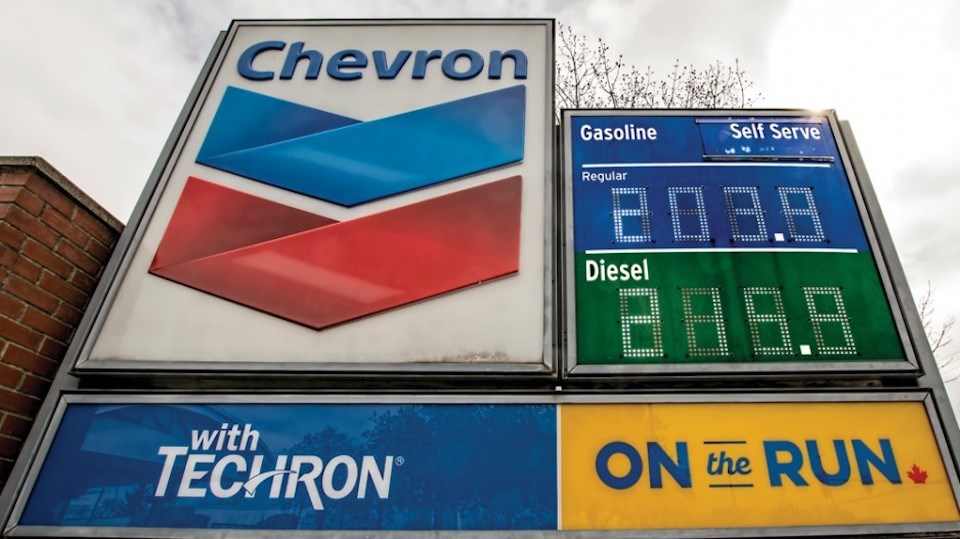After showing some signs of cooling this past summer, B.C.’s inflation rate rallied once again last month as gas prices hammered drivers at the pumps.
The rate of inflation hit 7.7 per cent on the West Coast in September compared with 7.3 per cent a month earlier, according to data released Wednesday by Statistics Canada.
This makes for the third consecutive month in which inflation in B.C. exceeded that of the national average:
- July: 8 per cent (B.C.) vs. 7.6 per cent (Canada)
- August: 7.3 per cent (B.C.) vs. 7 per cent (Canada)
- September: 7.7 per cent (B.C.) vs. 6.9 per cent (Canada)
And while inflation has been trending downward across the country, it's spent the summer to see-sawing in B.C.
Statistics Canada pointed to gasoline prices as the main culprit behind B.C.’s inflation resurgence.
Amid regional refinery shutdowns, the price of gas increased 27 per cent year over year in September. A month earlier, prices had gone up 17.7 per cent.
Meanwhile, grocery store prices (+11.4 per cent) grew at their fastest pace nationwide since August 1981 (+11.9 per cent) as Canadians were feeling especially pinched over the price of baked goods (+14.8 per cent), veggies (11.8+ per cent), dairy (+9.7 per cent) and meat (+7.6 per cent).
“Contributing to price increases for food and beverages were unfavourable weather, higher prices for important inputs such as fertilizer and natural gas, as well as geopolitical instability stemming from Russia's invasion of Ukraine,” Statistics Canada said in its report.
CIBC senior economist Karyne Charbonneau said the latest inflation numbers are likely to result in “some long faces at the Bank of Canada this morning as inflation cooled less than expected.”
She said in a note that the moderate national drop in inflation, which went from 7 per cent in August to 6.9 per cent in September, was driven mainly by a drop in gasoline prices (excluding in B.C.).
Core inflation, Charbonneau said, remained at levels unlikely to please the central bank, which has hiked its key rate 300 basis points since the start of the year.
“This is the third consecutive deceleration in headline CPI [consumer price index] driven mainly by the fall in gasoline prices. Given that those prices have since reversed, the next month could see headline inflation temporarily heading in the wrong direction again,” she said.
“CPI excluding food and energy rose by 0.4 per cent seasonally adjusted on the month, faster than last month, and at a pace that's too high to be consistent with the [Bank of Canada’s] 2 per cent target.”
TD senior economist Leslie Preston said in a note that the latest inflation numbers will put pressure on the Bank of Canada to hike its key rate by another 50 basis point when it makes its next decision Oct. 26.
BMO senior economist Douglas Porter said in a note he now expects a rate-hike of 75 basis points based on Wednesday’s inflation data.




